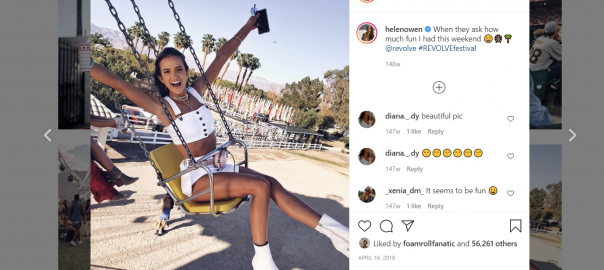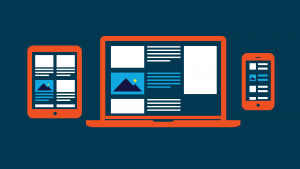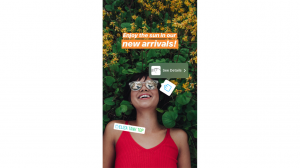If you’re planning an event, promoting it on social media is one of the most effective ways to generate buzz. Yet, few people know the best methods for how to promote an event on social media. With a choice of multiple platforms and nearly limitless possibilities for creative content, you have the opportunity to spread the word about your event far and wide. The power of social media is amplified when you put specific strategies to work on each site. Below, you’ll learn about the benefits of various social media platforms and numerous ways to promote your event, whether it’s a live open mic night in the park or a new product launch.
We’ll consider the benefits of each social media platform — and how to choose the right one for your event — as well as 5 ways to promote your event on social media, including:
- Choose a great hashtag
- Create an event page
- Create compelling content
- Partner with influencers
- Invest in the right tools
Choosing the right social media platform
Each social media platform has a unique set of benefits and often attracts certain demographics more than others. Depending on your target audience, event type, and industry, your choice of social network can have a massive impact on your marketing strategy. Remember, you can use as many platforms as you can successfully manage, and experience will teach you how to promote an event on social media, what to avoid, and what to reinforce. The most popular social media platforms include:
If you’re unsure about promoting an event on social media, Facebook is a solid beginner’s choice. Often considered the base of any social media marketing strategy, Facebook lets you:
- Share event updates. If you already have a Facebook Business profile set up, it’s easy to share event updates as a part of your typical content marketing.
- Communicate with followers. Facebook is a great way to interact with your audience members via direct messages, comments, or event pages. You can even host a live video to draw a crowd and get more eyes on the event.
- Create detailed event pages. One of the best features for event marketing on Facebook is the event pages feature, which anyone can use to provide details and updates on the event. Event pages also give your audience members a place to interact with each other and your business.
- Target your audience. If you want to reach a specific audience, you can utilize paid ad tools and maximize your content’s reach.
Instagram is a visually driven platform that is a force for connecting with potential attendees of your event. Instagram makes it easy to:
- Post eye-catching content. Instagram offers multiple ways to draw attention to your event — one is the classic post on your feed, where you can include up to 10 eye-catching photos or videos, a clever caption, and relevant hashtags.
- Create short-lived content. Instagram lets users post stories that disappear in 24 hours. These generate a sense of urgency from followers who don’t want to miss out on exclusive content. It’s simple to link your stories to your website or event landing pages with the “swipe up” feature.
- Engage with followers. There are a few ways to interact with your followers, such as responding to comments and chatting over direct messages. You can also create polls, Q&As, and quizzes in your stories. Like on Facebook, you can also host live videos and speak directly with followers in the chat.
- Link to your website. Your bio link is very important since many users navigate to your main profile to see what other posts you’ve put up. Provide a link to direct traffic from the app to your event page. Make sure to build your website and include the right event details before launching a social media campaign!
- Target your audience. Like Facebook, Instagram offers paid ads that can target your desired demographics.
If you’re hosting an industry-specific or business-related event, LinkedIn is the perfect place for promotional material. While many consider LinkedIn only to be useful when searching for jobs, the site provides many resources, including:
- Content marketing capabilities. LinkedIn is a great place to highlight content like blog posts, case studies, and even videos as a part of your content marketing plan.
- Opportunities to network. LinkedIn started with the concept of linking up. So, you can browse for other professionals, network with similar businesses, leverage endorsements, and the vast user base. LinkedIn is a great place to interact with other professionals in the comments or direct messaging feature.
- Event management. For corporate events, LinkedIn hosts an event management tool to streamline the promotion process.
Twitter is more popular than ever. This fast-paced platform thrives on short conversations between users. You can successfully promote your event on Twitter by:
- Utilizing unique hashtags. Twitter can seem difficult to navigate, but the key lies in hashtags. When considering the best hashtags for your content, think of hashtags as keywords to help your audience find your post.
- Browsing groups. Twitter might feel like it has lots of exclusive circles, but navigating the social groups can earn you a considerable new following. Take time to engage with followers in Twitter threads and private messages, and don’t feel like you aren’t part of the in-crowd.
- Posting promotional content. Twitter is known for its text-based characteristics, but you can also post images and videos to help promote your event in your tweets.
TikTok
TikTok is the newest popular social media app to hit the market. If you’re trying to reach a younger audience, TikTok can be a powerful tool for:
- Reaching a young demographic. TikTok is very popular among Gen Z, but it is starting to reach a broader audience of Millennials and older generations. If you’re able to leverage the youthful elements of TikTok, you can earn a massive following.
- Producing fresh content. TikTok is fast-moving, and its content centers around entertainment. If your event is music or dance-related, TikTok might be the right home for your social media marketing campaign.
- Livening up your marketing technique. If you’re looking to create of-the-moment content, TikTok is a great place to explore new audiences and new promotional styles. TikTok even has tools for business owners.
In this example, bridal company Sarah Seven chose Instagram to promote their trunk show.
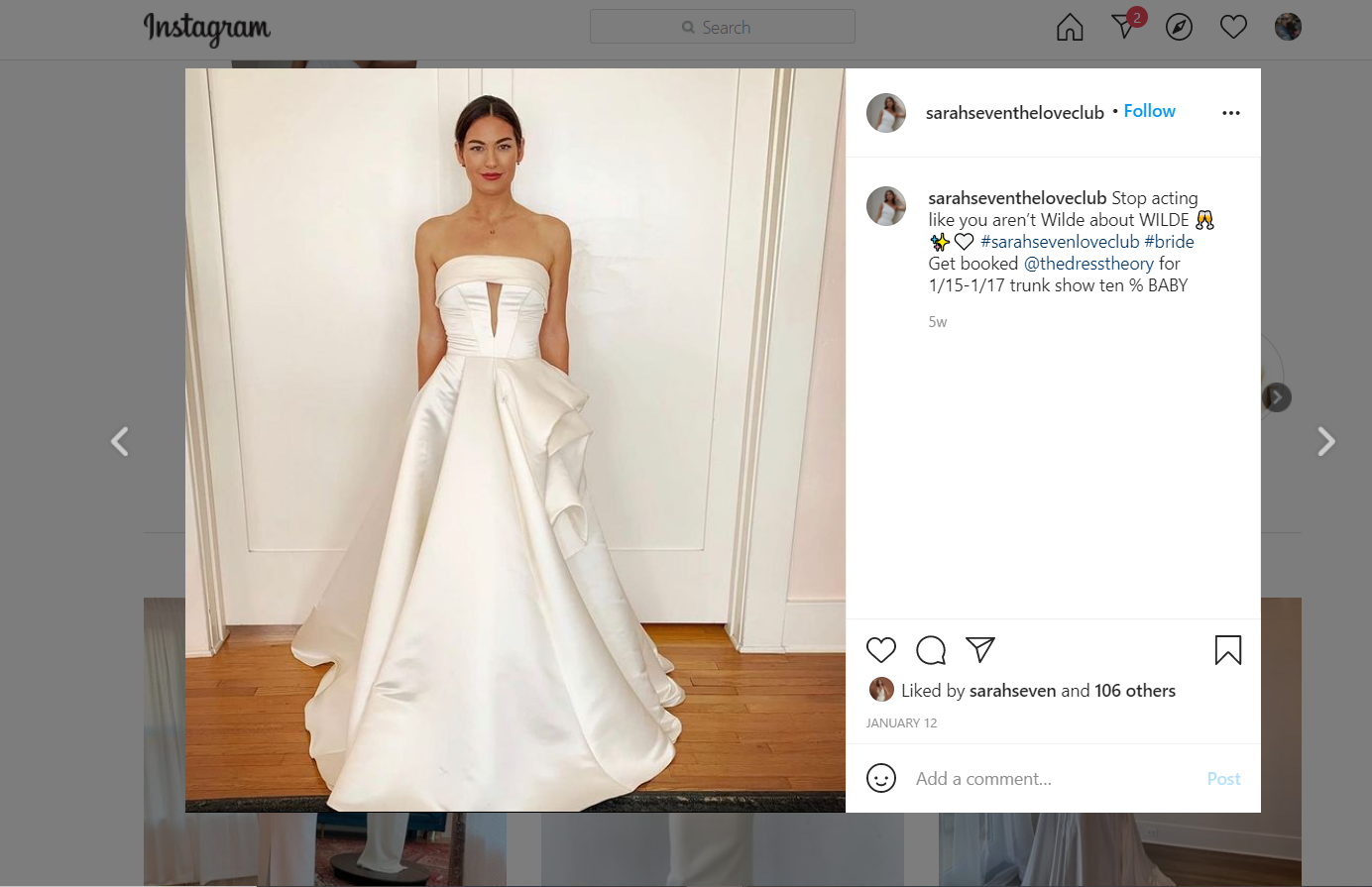
Sarah Seven promotes a trunk show in a well-written caption.
Sarah Seven successfully promoted their event with an eye-catching photo of one of their products, gave the event details and a sense of urgency in the caption, and used relevant hashtags and tagged users. The post is free from clutter and promotes the event with no frills.
5 ways to promote your event on social media
Now that you’ve explored the many platforms you can use to launch your event marketing campaign, it’s time to learn the most effective ways to promote an event on social media:
1. Choose a great hashtag
No matter what social media platforms you choose to market your event, you will need a great hashtag to use across all of them! As you craft the perfect hashtag for boosting event engagement, your goal is to:
- Be unique. Start by brainstorming ideas that capture the energy of your event. Always search Twitter or other social channels to make sure your hashtag isn’t already in use.
- Keep it short. Your text space is limited on social media — and so is the attention span of your followers! Keep your hashtag short and sweet but also distinctive and memorable.
- Be relevant. Choose a hashtag that is relevant to your event. For example, acronyms or abbreviations are popular and easy to understand.
- Stand out. Creating a catchy hashtag is a powerful tool in social media event marketing. Take the time to brainstorm unique ideas.
- Build awareness. The purpose of your hashtag is to create buzz for your event, so make sure it’s attached to informational content.
- Engage with guests. Keep in mind that guests might use your hashtag to pose questions or comment about the event. Routinely check your hashtags and respond to prospective attendees whenever possible!
- Be seen. Ultimately, a hashtag should be short, memorable, and straightforward. All of your event posts should include your hashtag — as should all of your social media bios. You can even list your hashtag on your website, in your email marketing campaigns, and print materials. While your event is in progress, encourage guests to use the hashtag to generate buzz around your business.
In this example, film festival Slamdance promoted their first-ever virtual festival with the hashtag #Slamdance and #Slamdance2021. While this is a straightforward hashtag, it highlighted the festival’s unique name, was easy to understand, and generated awareness by including the year.
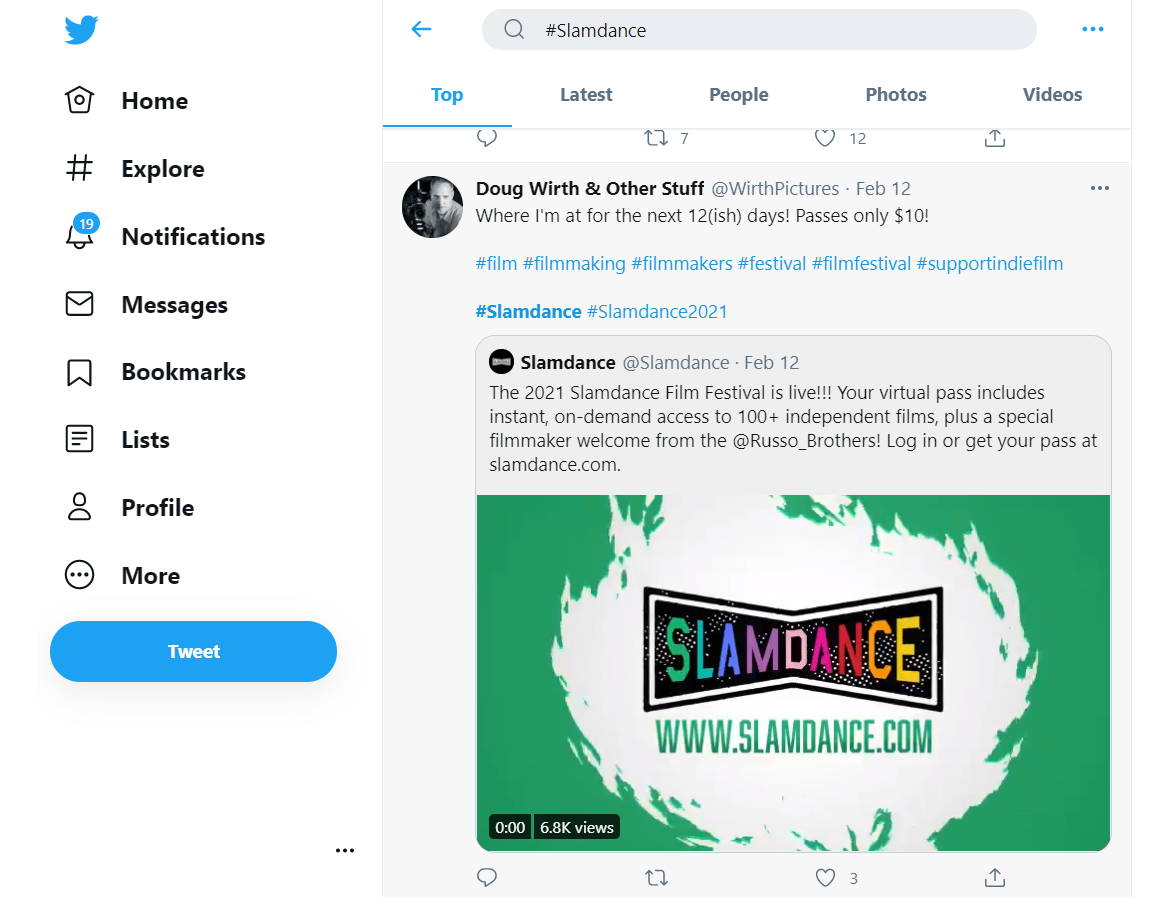
The Slamdance film festival chose a catchy hashtag for #slamdance2021
2. Create an event page
Once you’ve developed a great hashtag, creating an event page on Facebook is a great way to get all of your event details in one place on social media. To craft an effective Facebook event page:
- Choose a high-quality cover photo.
- Include specific details about location, time, and category so Facebook can promote your event the right way.
- Write an exciting event description.
- Highlight your ticketing link or link to your event website.
In this example, Fenty Skin by Fenty Beauty hosted a virtual launch party. Notice that this event hooked in potential guests by asking, “Ever wanted to party with Rihanna?” This opening line is bound to captivate attendees and Rihanna fans alike. While you might not have a global pop star as your founder, there are many ways to be creative in your description! The page also clearly lists event details and a link to their event landing page.
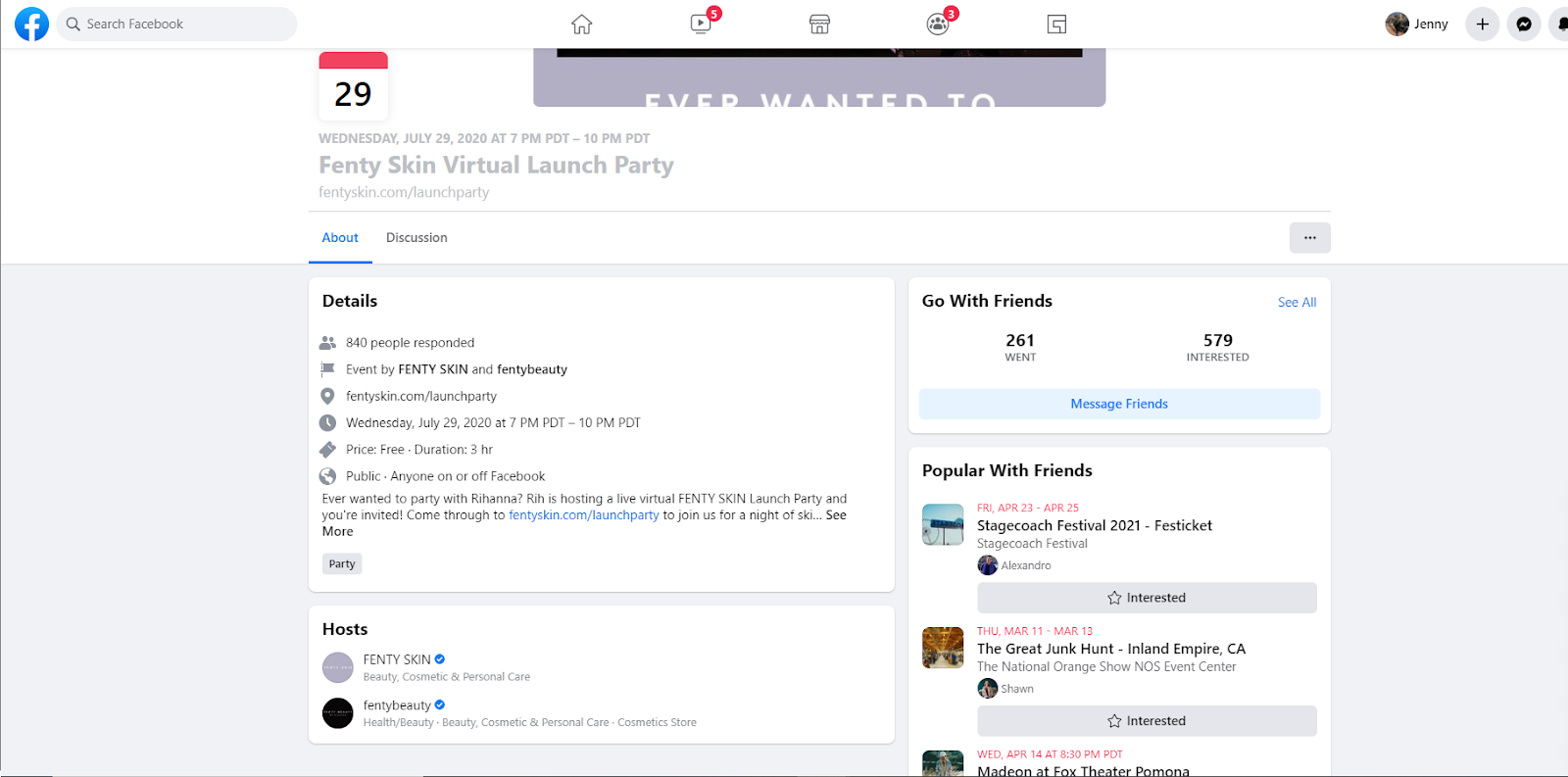
Fenty Skin uses star power to draw attendees to their Fenty Skin launch event page.
3. Create compelling content
At the heart of all great social media marketing campaigns is great content. Valuable content encourages higher rates of engagement, which earns you more views, which earns you more attendees at your event!
Use vivid imagery
Social media is a very visual medium. When choosing art or photography for your content, consider what you want to convey about your brand to your followers. If you’ve created an event logo, always include it somewhere in your content. Use professional photography that draws the viewer in.
In this example, apparel and lifestyle brand Ivy Park created a buzzworthy event out of their latest product collaboration with Adidas. Ivy Park is known for its stunning branding. On its Instagram page, Ivy Park capitalized on vivid photos to draw followers into their event and product launch.
Ivy Park lists their event times in their bio for a somewhat cryptic but exciting effect.
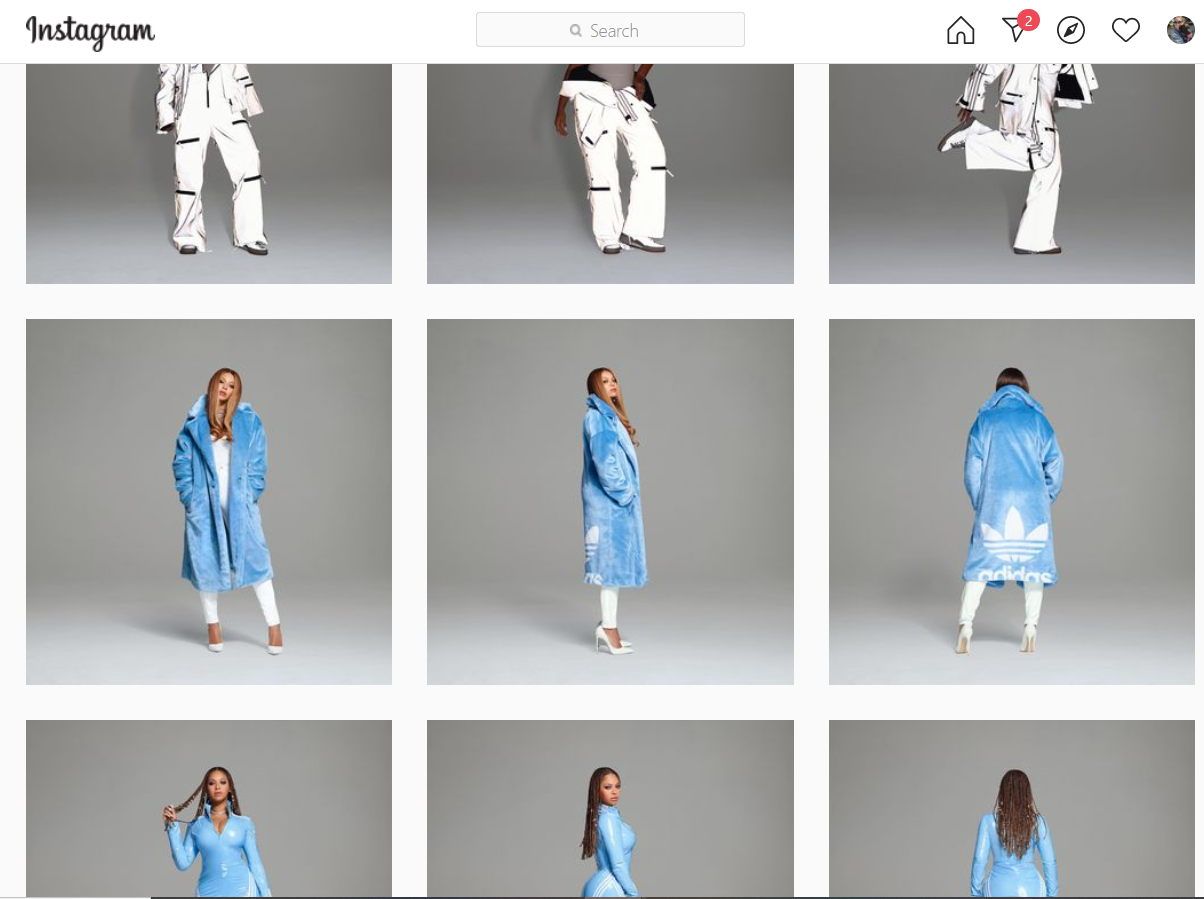
Ivy Park shines when it comes to using bold imagery to promote its events and products.
Tailor posts to your platform
As you generate content, consider which platform will have certain posts. While short and punchy posts with a casual voice do well on Twitter, LinkedIn calls for a more serious look and professional tone.
In this example, Arianna Huffington invites professionals to the No7 Unstoppable Together Virtual Job Summit with an appropriate tone, relevant tags, specific hashtags, a compelling promotional video, and a direct link to the event page on LinkedIn.
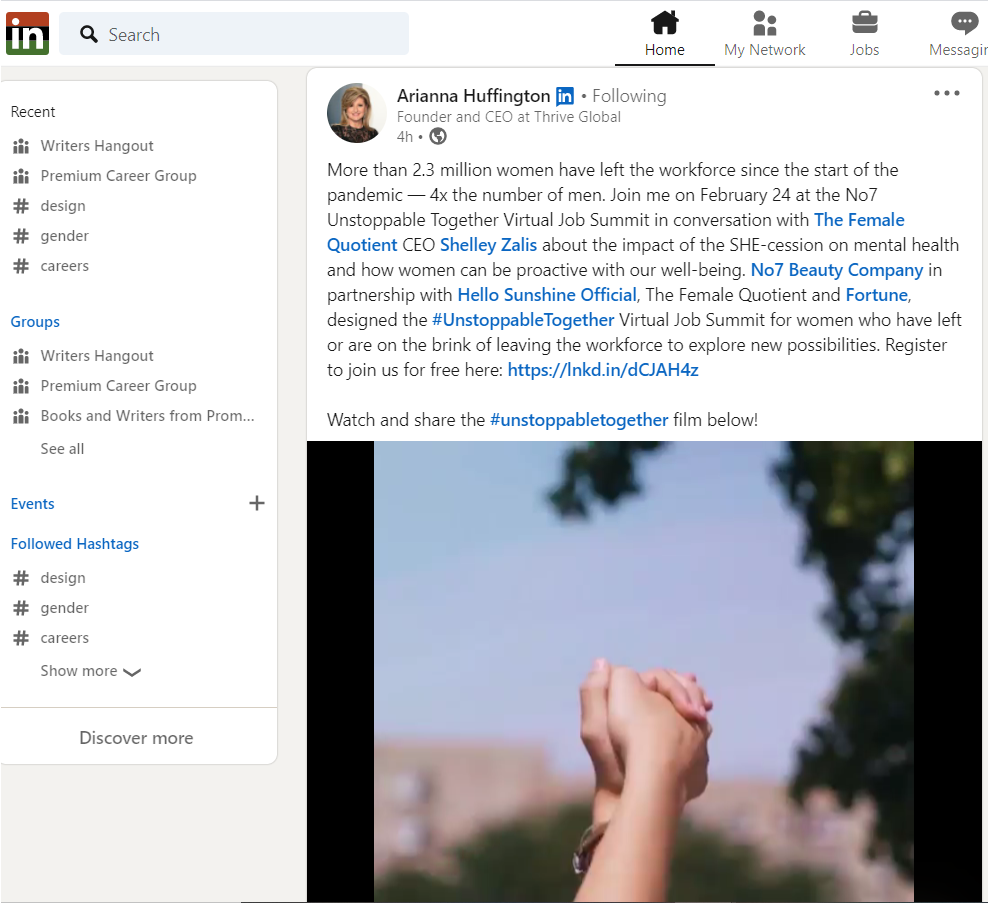
Arianna Huffington uses LinkedIn to promote a major job summit.
Be creative
When planning content, consider all possible avenues. For example, hosting live videos in the days leading up to an event is an excellent way to draw a crowd. Teasing events with short promo videos or stories will keep followers interested. Consider creative ways you can organize your feed with image motifs and color palettes to promote your event.
In this example, hair care brand OGX promoted their Uncap the Love carwash event by filling their feed with repeating images and cohesive colors.
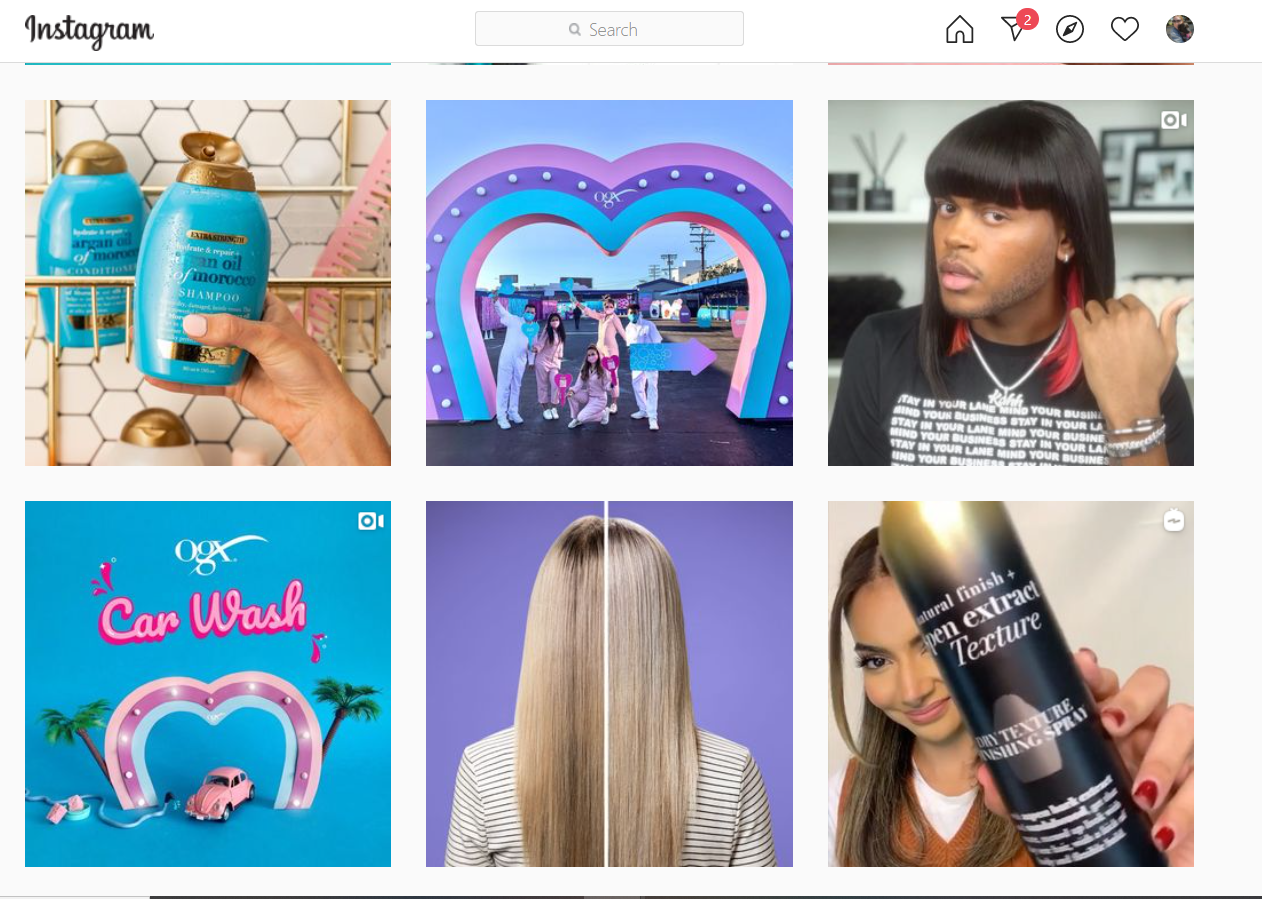
OGX fills their feed with promotions for their Car Wash event.
4. Partner with influencers
When it comes to direct social media marketing, influencers are the future. An influencer is a social media personality who has an established following. Quality influencers promote products, brands, and events by creating memorable videos, photos, stories, and collaborations. Influencers often have a devoted and trusting following, making them an excellent resource for promoting your event. Before approaching an influencer, look for one who:
- Aligns with your brand values and imagery
- Promotes events similar to yours
- Has a significant enough following to make an impact
In this example, influencer Helen Owen promoted the REVOLVE Festival. Influencer promotion doesn’t end once the event starts. Here, Helen wore Revolve clothing while she enjoyed herself at the Festival. She continued to raise awareness about the event, garnered more followers for the brand, and may have convinced people to attend the next festival when it returns.
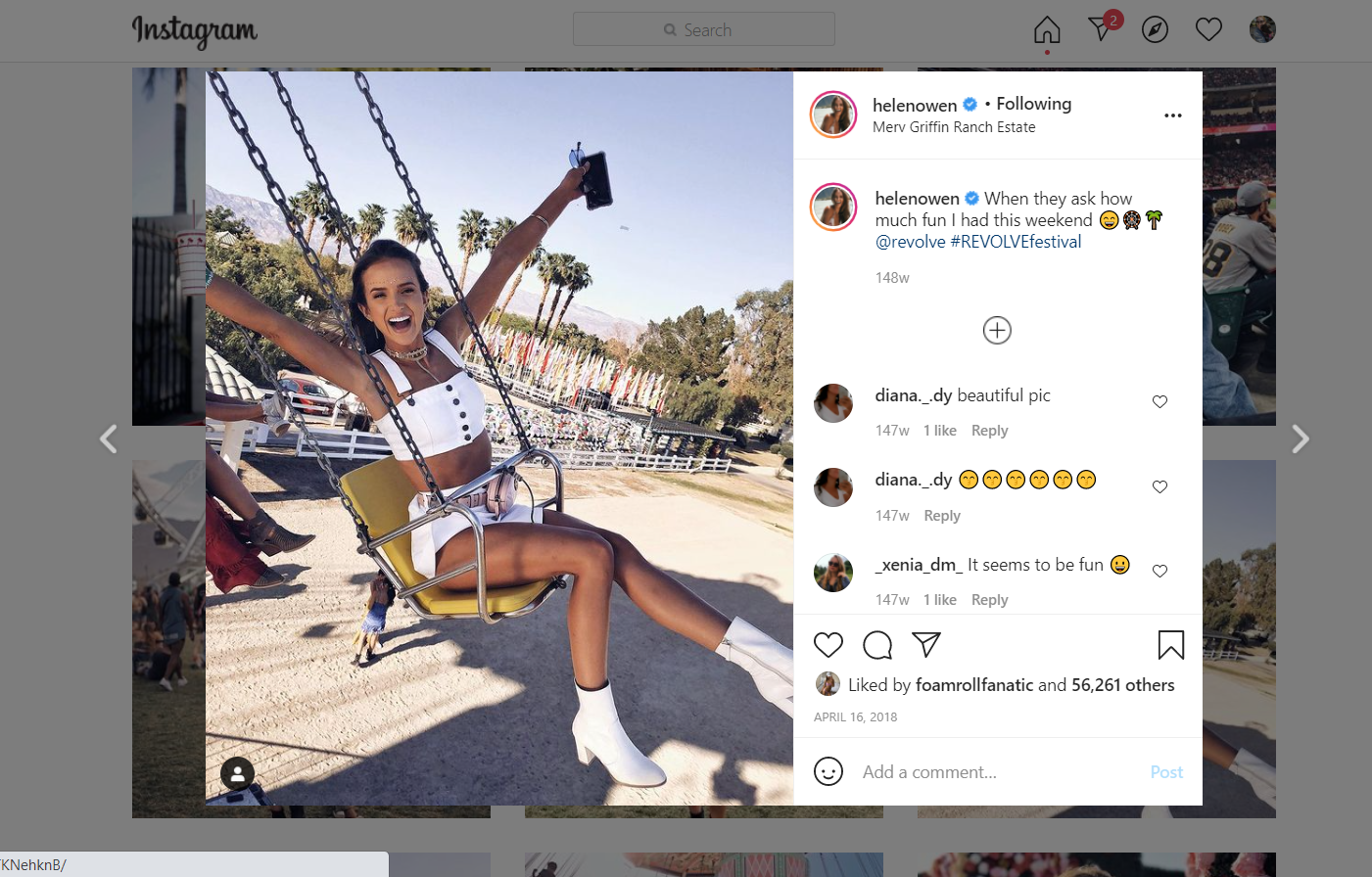
Influencer Helen Owen shines while promoting REVOLVE Festival.
5. Invest in the right tools
It pays to use the right tools for your promotions. Social media sites have built-in options, and they’re generally safer and cheaper than aftermarket or off-brand tools. Before launching, consider investing in:
Paid advertising
No matter how you choose to promote your event, paid ads on Facebook and Instagram are a surefire way to gain more visibility. When you use a Facebook and Instagram ad tool, you can streamline the posting process and analyze the effect and outreach of your campaign. This can help you gain more accurate assessments of your return on investment.
Social media analytics
Posting on social media is a great way to drive traffic to your event website, but it’s important to know what content is working for you and why. Gain valuable insights by utilizing a social posting and monitoring tool for your next event, and scrap the content that doesn’t benefit you so you can focus on the materials that have the largest effect.
Event management tools
There are a lot of moving parts in event management — even for virtual events! Since COVID-19, virtual events have skyrocketed, and they’ll likely remain popular in the future. Fortunately, you can use an event management tool to help promote awareness, track registration, and organize details for your virtual events.
Takeaways
Now that you understand how to promote an event on social media, are you ready to get started? Promoting your next event is just one element of online marketing. If you want to read more about marketing in the arts and entertainment industry, check out The Download, a free marketing guide for arts and entertainment professionals.
Digital & Social Articles on Business 2 Community
(171)
